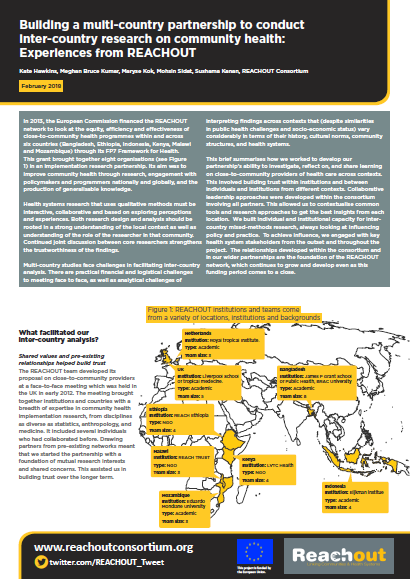Health systems research that uses qualitative methods must be interactive, collaborative and based on exploring perceptions and experiences. Both research design and analysis should be rooted in a strong understanding of the local context as well as understanding of the role of the researcher in that community. Continued joint discussion between core researchers strengthens the trustworthiness of the findings.
Multi-country studies face challenges in facilitating inter-country analysis. There are practical financial and logistical challenges to meeting face to face, as well as analytical challenges of interpreting findings across contexts that (despite similarities in public health challenges and socio-economic status) vary considerably in terms of their history, cultural norms, community structures, and health systems.
This brief summarises how we worked to develop our partnership’s ability to investigate, reflect on, and share learning on close-to-community providers of health care across contexts. This involved building trust within institutions and between individuals and institutions from different contexts. Collaborative leadership approaches were developed within the consortium involving all partners. This allowed us to contextualise common tools and research approaches to get the best insights from each location. We built individual and institutional capacity for inter-country mixed-methods research, always looking at influencing policy and practice. To achieve influence, we engaged with key health system stakeholders from the outset and throughout the project. The relationships developed within the consortium and in our wider partnerships are the foundation of the REACHOUT network, which continues to grow and develop even as this funding period comes to a close.
Download the brief

This project is funded by the European Union.

